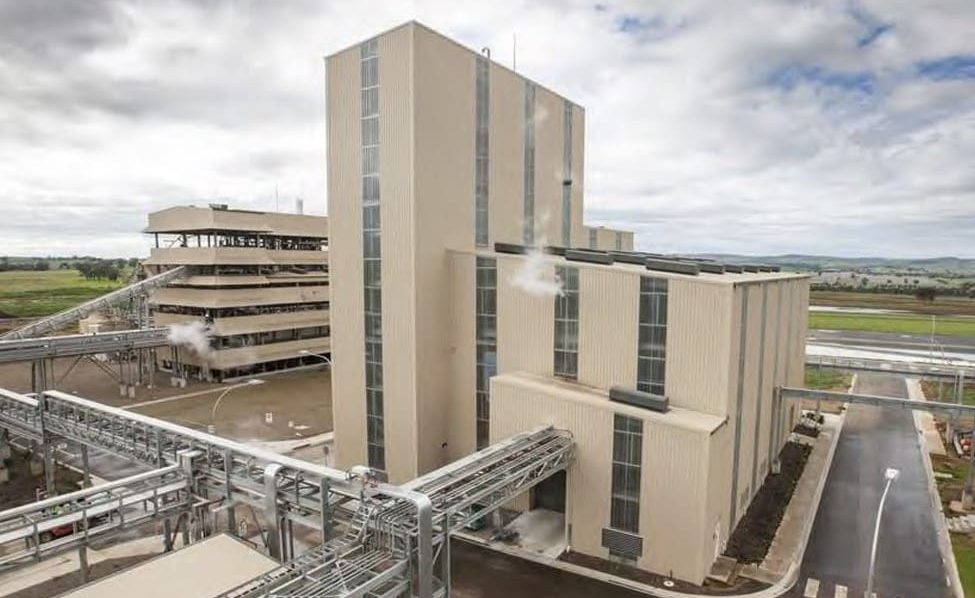
ROBE has operated a crush facility near Wagga Wagga since 2013. Photo: ROBE
AUSTRALIAN oilseed processor Riverina Oils and Bioenergy (ROBE) has reported a 60-percent fall in after-tax profit for the year to December 31.
The company, which operates an oilseed crushing and refining plant at Bomen near Wagga Wagga in New South Wales, recorded a profit after income tax of $14.34 million for 2024, down $21.13M from $35.47M in 2023.
These results come as ROBE progresses expansions at its Bomen plant, with early planning under way to increase overall crushing capacity by one third.
ROBE, an Australian-registered company owned by Singapore-based Asiawide Agri Holdings Pte Ltd, filed its full-year financial statements with the corporate regulator on March 28.
While no details were provided in the documents, the drop in profit is ostensibly due to a fall in revenue of 5.34pc alongside an increase in the cost of sales of about 4.21pc.
For 2024, ROBE reported revenue of $276.5M, down from $292.1M in 2023, while its cost of sales rose to $245.95M from $235.61M in 2023.
These two factors alone account for a $25.94M shift in the company’s financial position year on year.
According to the report, ROBE “generates revenue primarily from the sale of canola oil, vegetable protein meal and canola seeds”.
The majority, or $243.65M, of goods were sold in the Oceania region, classified as Australia and New Zealand, with the remainder, $32.85M, sold in the United Sales.
ROBE operates a US-based subsidiary, Riverina Natural Oils LLC, which sells non-genetically modified canola to the US and Canadian markets.
The sale of goods to the US fell $5.77M from 2023.
The company’s net asset position improved in 2024, reported at $102.18M, up from $92.3M.
During 2024, ROBE spent an additional $5.75M on the crush plant and other associated assets, down from $6.7M in 2023.
Leadership shift
The 2024 calendar year also saw a significant officeholder change, with ROBE founder Dhruv Deepak Saxena resigning as a director in March.
Mr Saxena played a key role in launching the facility in 2013 and growing the company’s footprint in the domestic market.

ROBE founder Dhruv Deepak Saxena. Photo: NAB
He was previously referenced as the company’s managing director.
According to filings with the corporate regulator, no replacement has been formally named; however, the annual report was signed by company director and current chief executive officer Andrew Jackson, and lodged by company secretary Andrew Metcalfe, who took on the role in October.
The most recent addition to the board of 11 directors is Robert Green, appointed in November.
Based in Tonimbuk, Victoria, Mr Green is a well-known figure in Australian agribusiness, having served in roles with Louis Dreyfus Company and Cargill.
Expansion projects
Over the past several years, ROBE has been undertaking works and planning to expand both the storage capacity and processing capabilities of its Bomen facility.
In September, the NSW Government approved an application to increase the on-site grain storage capacity from 27,000 tonnes to 60,000t.
This project included the construction of two storage bunkers with the capacity to hold up to 58,000t.
Previously, the site had approvals to store 25,000t in temporary bunkers and 2000t in silos.
In the application documents, ROBE said the additional capacity would provide the company “the opportunity to remain a viable supplier of grain processing in the region”.
“The limited storage capacity on site is preventing sufficient seed accumulation to satisfy the supply from local growers,” the document said.
“This is placing a strain on the relationship ROBE has with their local canola growers, making it difficult for local growers to find suitable storage options for their harvested seeds.
“As a result, the growers need to seek alternative storage solutions or transport their seeds to other locations.”
Subject to the approval process, the application document said it was “anticipated that construction would commence in August or September 2024 once the current temporary bunker storage is depleted to enable the 2024 harvest to be received”.
Another planning application for the Bomen site is in the early stages with the NSW Government.
No documents have yet been published on the NSW Government’s website, with ROBE still in the process of preparing a modification report outlining its expansion plans.
Available information indicates that ROBE is proposing to expand the overall crush capacity at the facility by one third.
The Bomen facility has held approvals for a maximum annual crush capacity of 200,000t since it began operations in 2013.
This project would seek to increase this figure to 300,000t per annum.

HAVE YOUR SAY